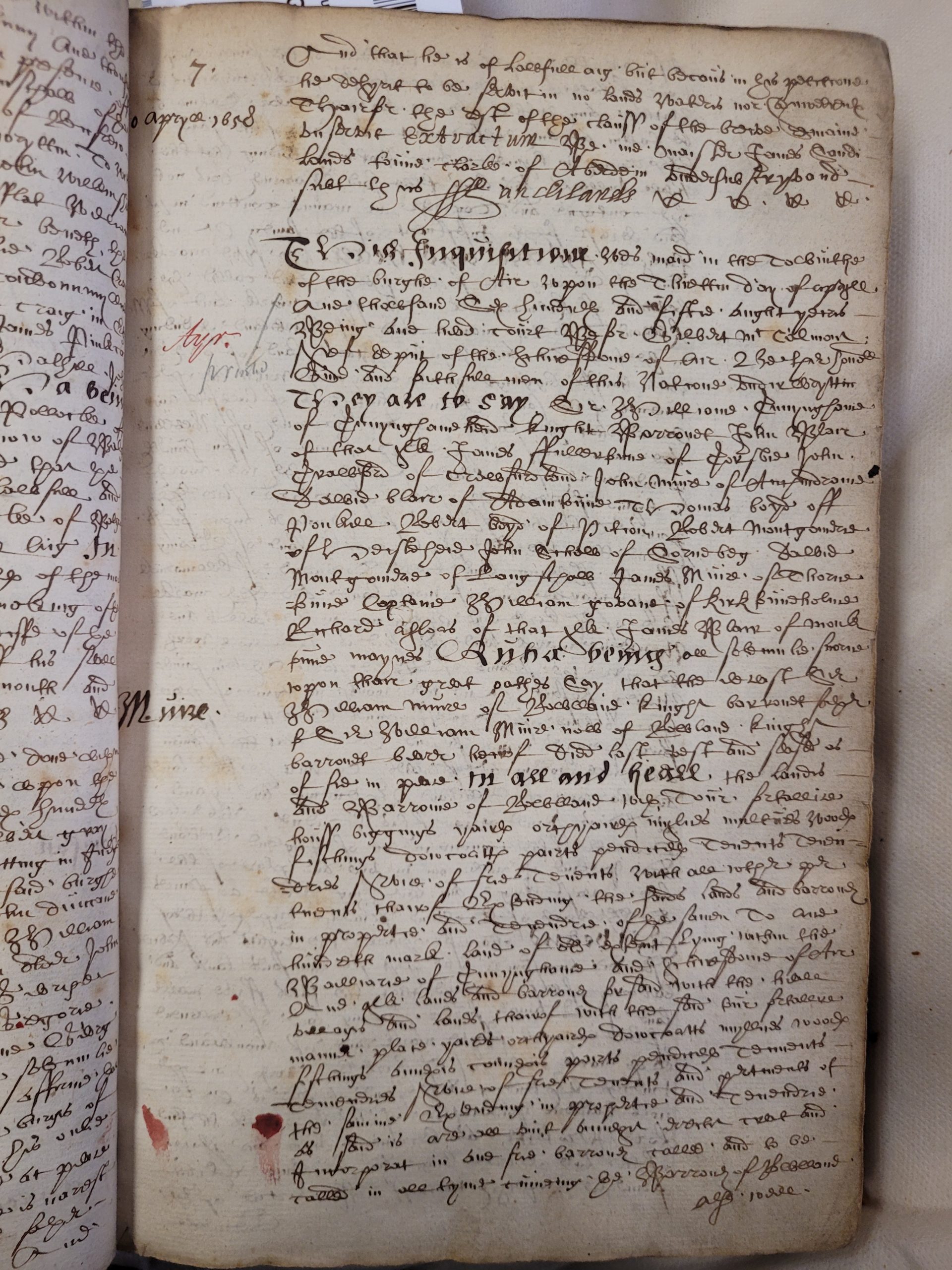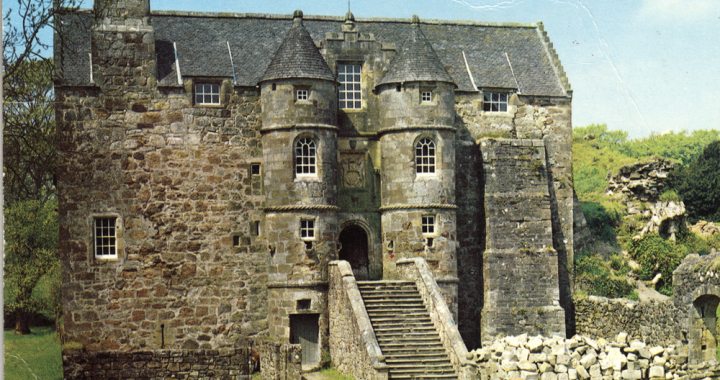The Mure of Rowallan "Baronetcy"
Occasionally within what are expected to be uncomplicated, dry, uninspiring items of evidence something curious is stumbled upon. Such was the case with the service of Sir William Mure of Rowallan to his father, the late Sir William Mure of Rowallan, which was expede in Ayr Tolbooth on 13 April 1658 [see NRS C22/15/7]. The printed abstracts of the Services of Heirs from the 16th century up to 1700 (annoyingly) not including dates of death or years lands had been in nonentry, I have gotten into the habit of referring to the original entries to gather that exceptionally useful information as well as to quickly check for anything else which may be of at least a passing interest. In this instance, I'm glad that I did for within lines 24-26 of this first page (below) is to be found the statement "the deceast Sir William Mure of Rowalane knight barronet father to Sir William Mure, now of Rowalane knight barronet". At first glance there would appear to be little to write home about, however, it is in the inclusion of the term "knight barronet" throughout the entry that the curiosity is piqued as the reference is to a Baronetcy which is hitherto not known to have existed. Those sources in which a creation should have been recorded or referred to - the registers of the Great and Privy Seals or a Sasine for corresponding lands in Nova Scotia - are all silent on the matter; even authorities such as the Complete Baronetage make no reference to such a title. It would be easy to pass this off as nothing more than a notary's clumsy error but such a statement cannot be so easily explained away on the basis that the presumption in law in regard to historical documents as this is that everything was done correctly. In this instance, though, the senior male line having extinguished on the death of Sir William Mure of Rowallan in October 1700 and there being no prospective heir male to pick up the case, the point is one of historical curiosity until it can be settled one way or another in a competent court of law.

